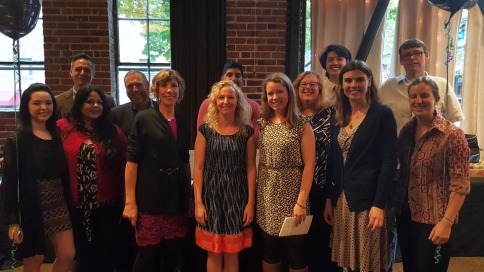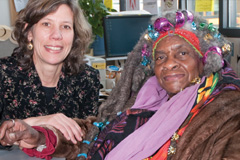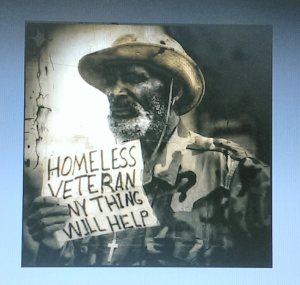On October 25, I had the opportunity to represent Solid Ground alongside Speaker of the House Frank Chopp (also Solid Ground Senior Advisor and former Fremont Public Association Executive Director) at FamilyWorks Resource Center & Food Bank’s 20th Anniversary Sunday Supper & Auction celebration. It was a joyful and inspiring evening.
For 20 years, the resource center has provided comprehensive, strength-based programming to support families in conjunction with the food bank. In addition to providing nourishing food, FamilyWorks creates programs that support and help develop parenting and life skills for individuals, families and teen parents.
Photos from FamilyWorks’ 20 years of service (click for larger images and captions)
Throughout the 20th Anniversary celebration, many stories were shared about the lives touched by FamilyWorks. One story I found especially moving featured a FamilyWorks food bank recipient who is now a trusted FamilyWorks volunteer as well as a resident of Santos Place on Solid Ground’s Sand Point Housing campus.
It is an impressive feat that our colleagues at FamilyWorks have provided critical resources to our shared community for 20 years. In particular, I would like to thank Ms. Jake Weber, FamilyWork’s Executive Director, who has been a moving force there since the agency’s foundation. She served two years on the founding board followed by 18 years of service as Executive Director.
At the dinner, FamilyWorks announced the first-ever Kerwin Manuel Impact Award, named after the late Mr. Manuel for his dedicated and courageous service to FamilyWorks and their program participants. Frank and I were honored and grateful to accept the award on behalf of Solid Ground, in recognition of the special partnership that exists between our two organizations.
I’m proud of the long-lasting and meaningful partnership that exists between FamilyWorks and Solid Ground. As FamilyWorks nourishes and strengthens individuals and families by connecting people with support, resources and community, Solid Ground works to end poverty and undo racism and other oppressions that are root causes of poverty.
Our region is a better place because of FamilyWorks’ important work and the partnership we continue to share.
Filed under: Community Partners | Tagged: community building, FamilyWorks, Fremont Public Association, partners | Leave a comment »































